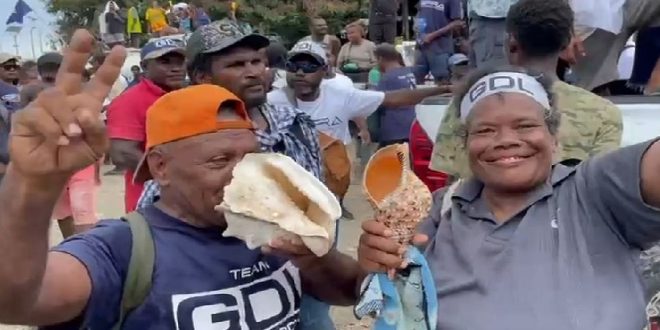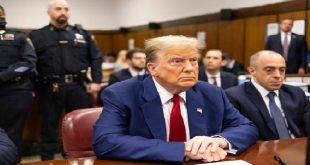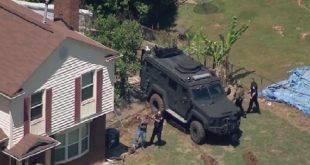18-04-2024
BEIJING/ SOUTH-WEST PACIFIC OCEAN: In the Solomon Islands, the night before an election is known as Devil’s Night.
Political candidates offer bribes handing out everything from cash and boat motors, sacks of rice and solar panels to secure last-minute votes. Vote-buying has been a common tactic in the Pacific island nation’s elections hard to stamp out, despite toughened electoral laws but this is not why some of the world’s biggest powers are paying such close attention to Wednesday’s vote.
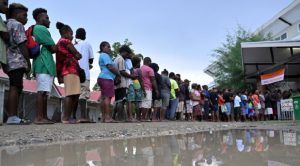 That is because this far-flung part of the southern Pacific plays a crucial role in the jostling between China and the US with its ally Australia, for influence in the region.
That is because this far-flung part of the southern Pacific plays a crucial role in the jostling between China and the US with its ally Australia, for influence in the region.
Back on the ground, however, voters will largely be focusing on their immediate needs more than 80% of the 700,000 population live outside the capital, most without basic services like electricity, medical aid and transport.
Wednesday’s election delayed from last year is the first time citizens will be able to vote since the Solomon Islands pivoted from the West towards Beijing.
As a result, the vote could be seen as “a referendum” on incumbent leader Manasseh Sogavare’s “willingness to play powers like China and Australia off each other to gain concessions for his country”, says researcher Edward Cavanaugh, who travelled across the Solomons for his book documenting the nation’s turn to China.
Located about 1,600km (900 miles) north of Australia, the Solomon Islands is one of the poorest countries in the region due to decades of tribal conflict.
Up until 2017, Australia led a peacekeeping mission here.
Two years after the mission ended, Prime Minister Sogavare chose to drop his country’s decades-long diplomatic relationship with Taiwan in favour of Beijing. Then, in 2022, he signed a security pact with China, the details of which are still not publicly known.
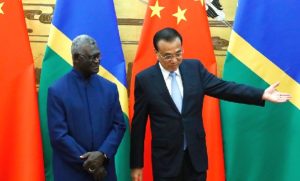 That set off major alarm bells for some of its neighbors, including Australia. At one point, there was talk the treaty could allow a Chinese naval base to be established in the US-dominated Pacific region rumors dismissed by Sogavare.
That set off major alarm bells for some of its neighbors, including Australia. At one point, there was talk the treaty could allow a Chinese naval base to be established in the US-dominated Pacific region rumors dismissed by Sogavare.
Sogavare, if he wins again, has pledged to further strengthen relations, he sees Beijing as the provider of his country’s future prosperity, while also making clear his dislike of traditional partner Australia and the US. He told the UN last year that China was the Solomon’s lead infrastructure partner.
Chinese aid and investment have flowed into the country since the deal, bringing new stadiums, roads and other infrastructure but his political opponents have criticized his closeness to China, questioning if it’s the best course for the nation. Some have said that if they gain power they would revisit the China security deal, while others say they prefer working with traditional Western partners.
People across about 900 islands will make their way to polling booths between 07:00 local time (23:00 GMT) and 16:00 to vote for representatives at the national and provincial level.
There are 50 MP seats to be filled. Negotiations then happen after that to form a ruling coalition, with MPs voting among themselves to select a prime minister.
Party lines have historically been non-fixed and rather loose. More than 100 candidates are running as independents, while only 20 candidates are women – a long-running issue.
Two competing coalitions (DCGA and CARE) are fielding enough candidates to make it possible for either to win, says Pacific analyst Meg Keen, from the Australian foreign policy thinktank The Lowy Institute. (Int’l News Desk)
 Pressmediaofindia
Pressmediaofindia
